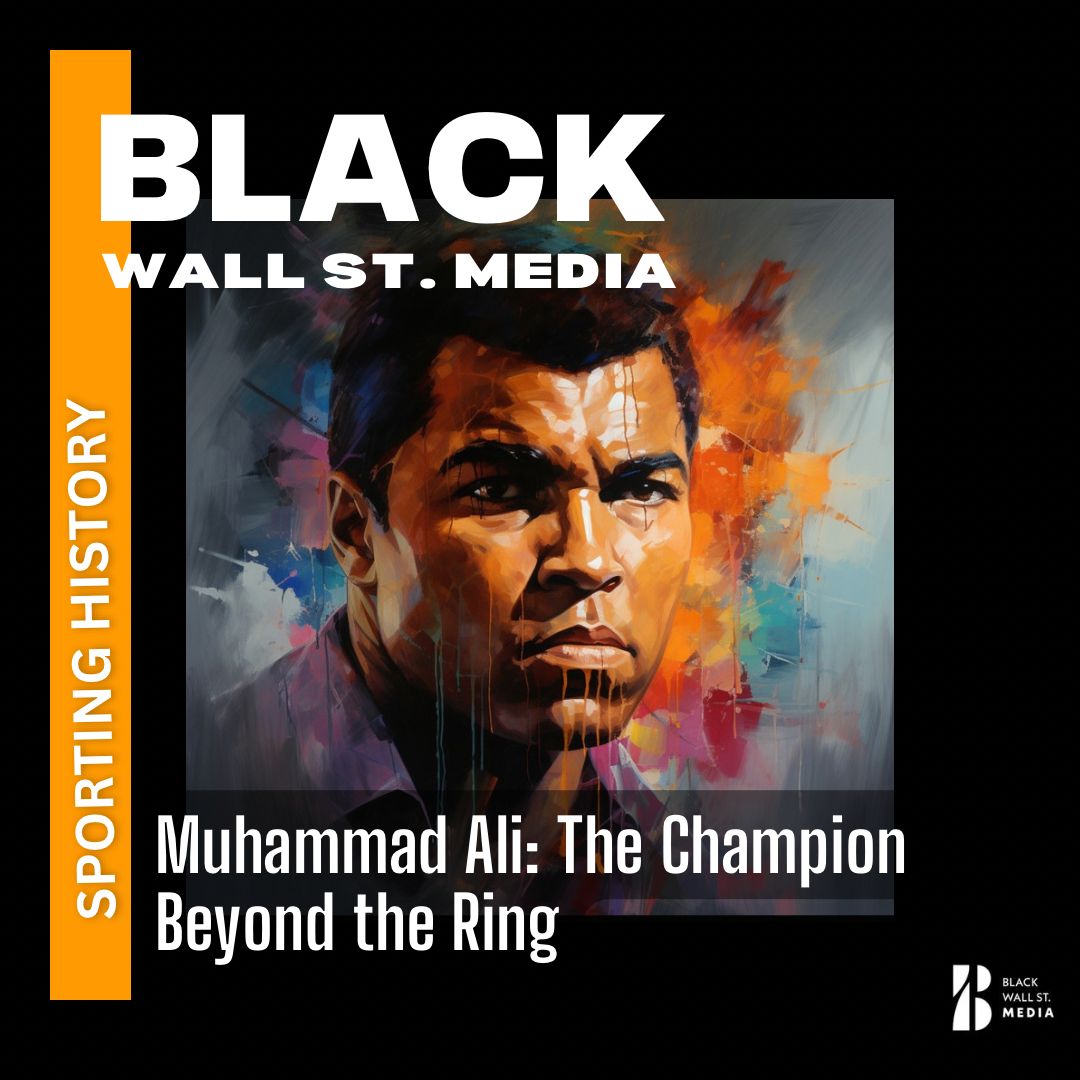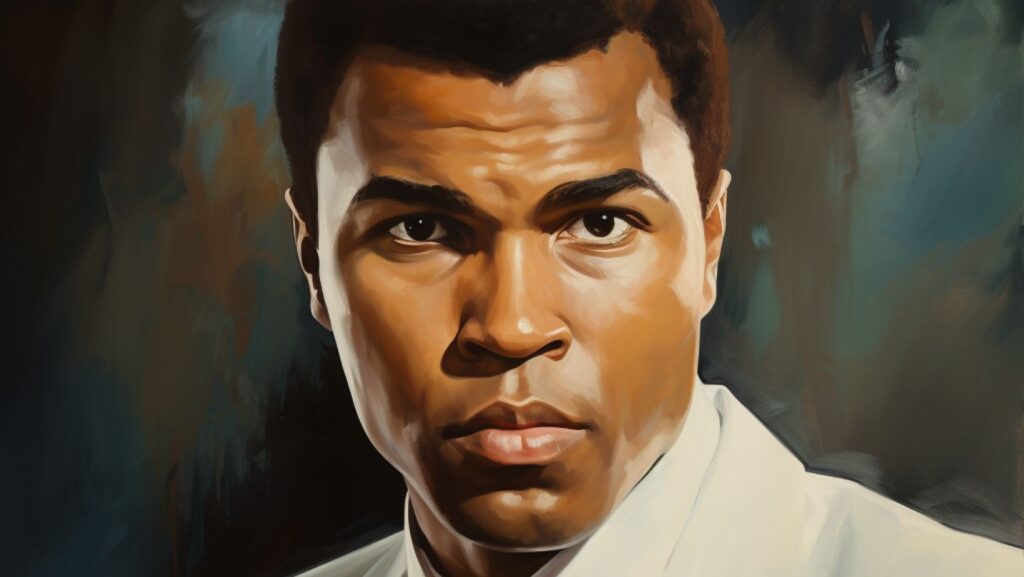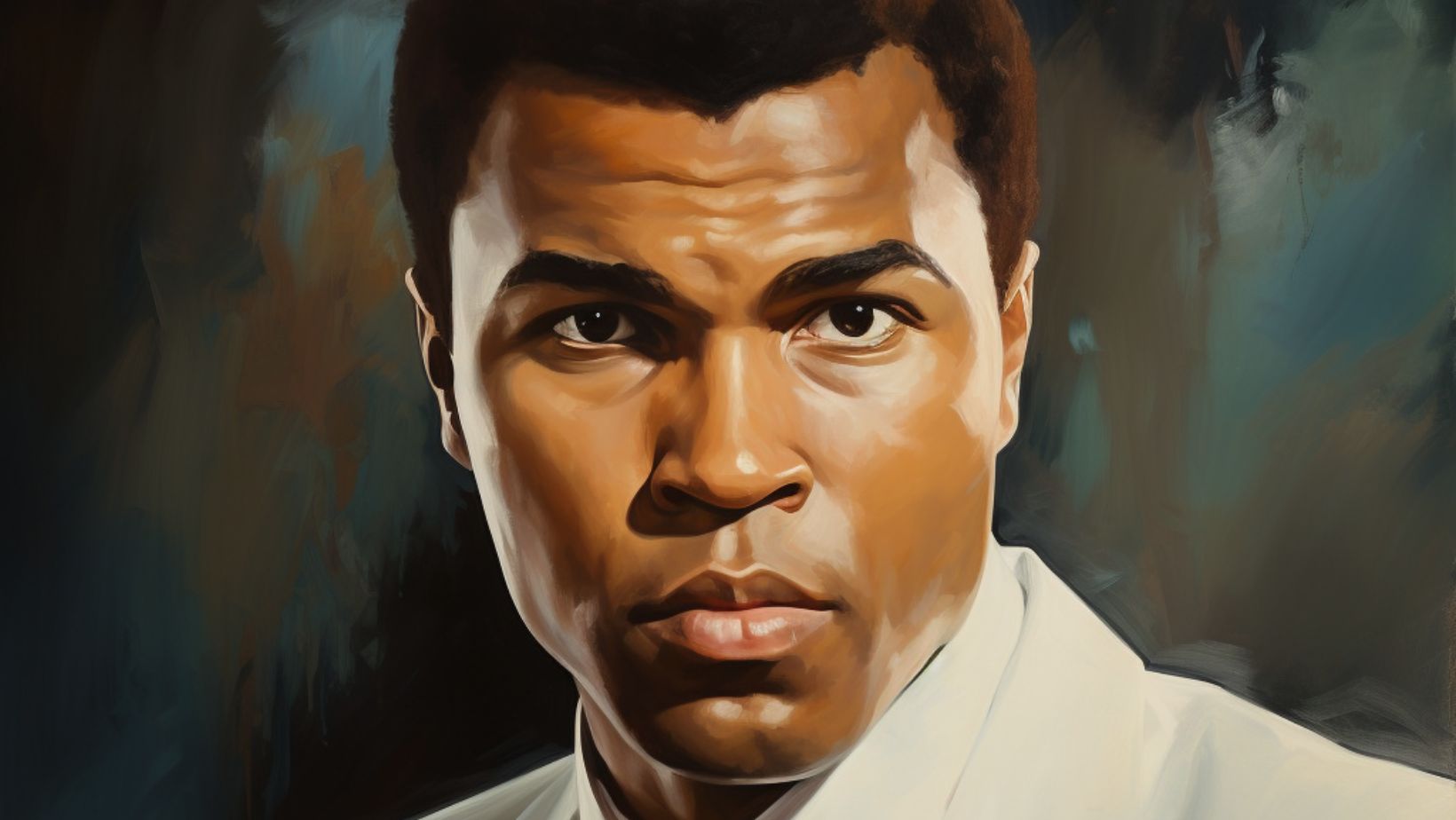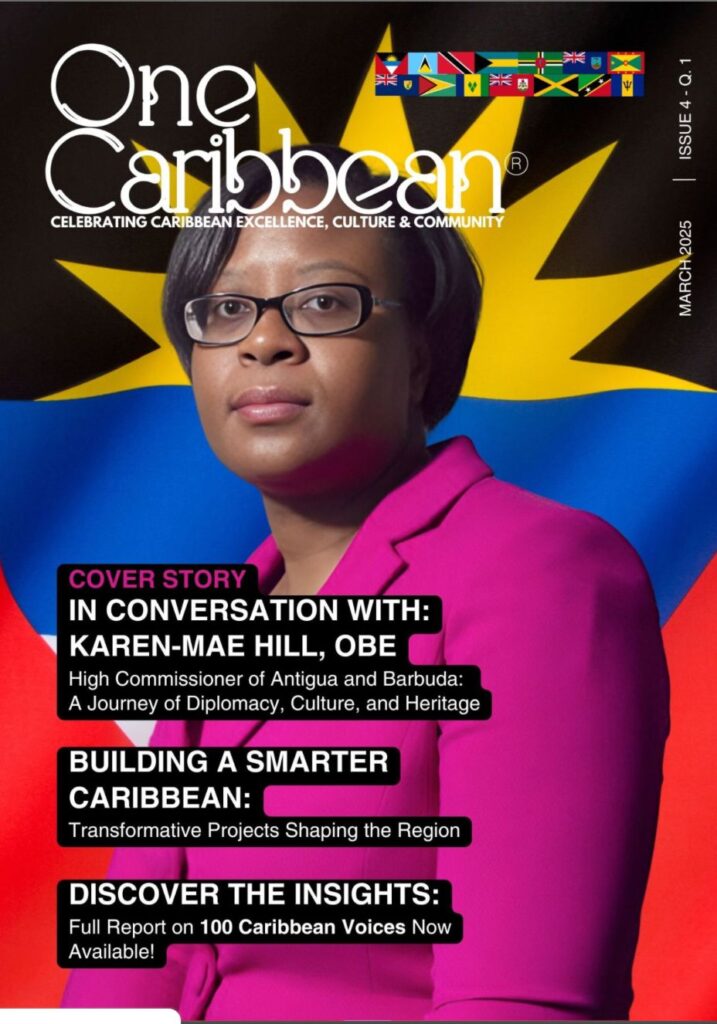SPORTING HISTORY
Muhammad Ali: A Legend Beyond Boxing
“Step into the extraordinary life of Muhammad Ali, a name synonymous with greatness.”
Black Wall St. MediaContributor

Muhammad Ali, a name etched in the annals of sports history, transcended the realm of boxing to become one of the greatest sporting figures of the 20th century.
From his early years marked by determination to his legendary bouts and impactful humanitarian efforts, Ali’s journey is one of resilience, conviction, and unmatched talent.

MuhammadAli: A Legend Beyond Boxing
Early Years and Amateur Career: Born Cassius Marcellus Clay Jr. on January 17, 1942, in Louisville, Kentucky, Ali’s journey into boxing was ignited by the theft of his beloved bicycle.
A chance encounter with Louisville police officer Joe Martin, who doubled as a boxing trainer, set the course for Ali’s future.
Winning his first bout just six weeks later, Ali’s prowess in the ring became evident. By age 18, he had clinched national titles and a gold medal in the 1960 Summer Olympics.
Heavyweight Champion of the World: Ali’s professional debut on October 29, 1960, marked the beginning of a dazzling career.
His charismatic persona, quick jabs, and foot speed earned him the moniker “Louisville Lip.”
The pinnacle came on February 25, 1964, when the 22-year-old Ali, as Cassius Clay, faced reigning champion Sonny Liston.
The iconic “float like a butterfly, sting like a bee” prediction came true as Liston failed to answer the bell in the seventh round, crowning Ali the heavyweight champion.
His conversion to Islam, joining the Nation of Islam, and the subsequent change of name to Muhammad Ali marked a significant chapter in his life.
Ali defended his title multiple times until his refusal of military induction in 1967 led to a three-year exile, stripping him of the championship.
Return to the Ring and Triple Crown Glory: After 43 months in exile, Ali returned on October 26, 1970, knocking out Jerry Quarry.
The “Fight of the Century” against Joe Frazier in 1971, though a defeat, set the stage for Ali’s comeback.
The historic “Rumble in the Jungle” in 1974 against George Foreman showcased Ali’s legendary “rope-a-dope” strategy, securing an eighth-round knockout and regaining the heavyweight title.
Ali’s journey continued with memorable victories, including the “Thrilla in Manila” against Frazier in 1975. He became the first fighter to win the world heavyweight title three times.
Later Years and Legacy: Diagnosed with Parkinson’s syndrome in 1984, Ali’s physical abilities declined, but his spirit endured. Despite the challenges, he remained a global ambassador, negotiating international affairs and championing charitable causes.
Ali’s influence extended beyond sports, earning him accolades such as the BBC’s “Sporting Personality of the Century” and Sports Illustrated’s “Sportsman of the Century.”
The Muhammad Ali Center, opened in 2005, stands as a testament to his commitment to peace and social responsibility.
Ali passed away on June 3, 2016, leaving behind a legacy of courage, conviction, and the enduring belief that greatness extends beyond the boundaries of sports.
”In the ring and beyond, Muhammad Ali's impact reverberates, inspiring generations to reach beyond limits and stand firm in their principles.
Black Wall St. MediaContributor











